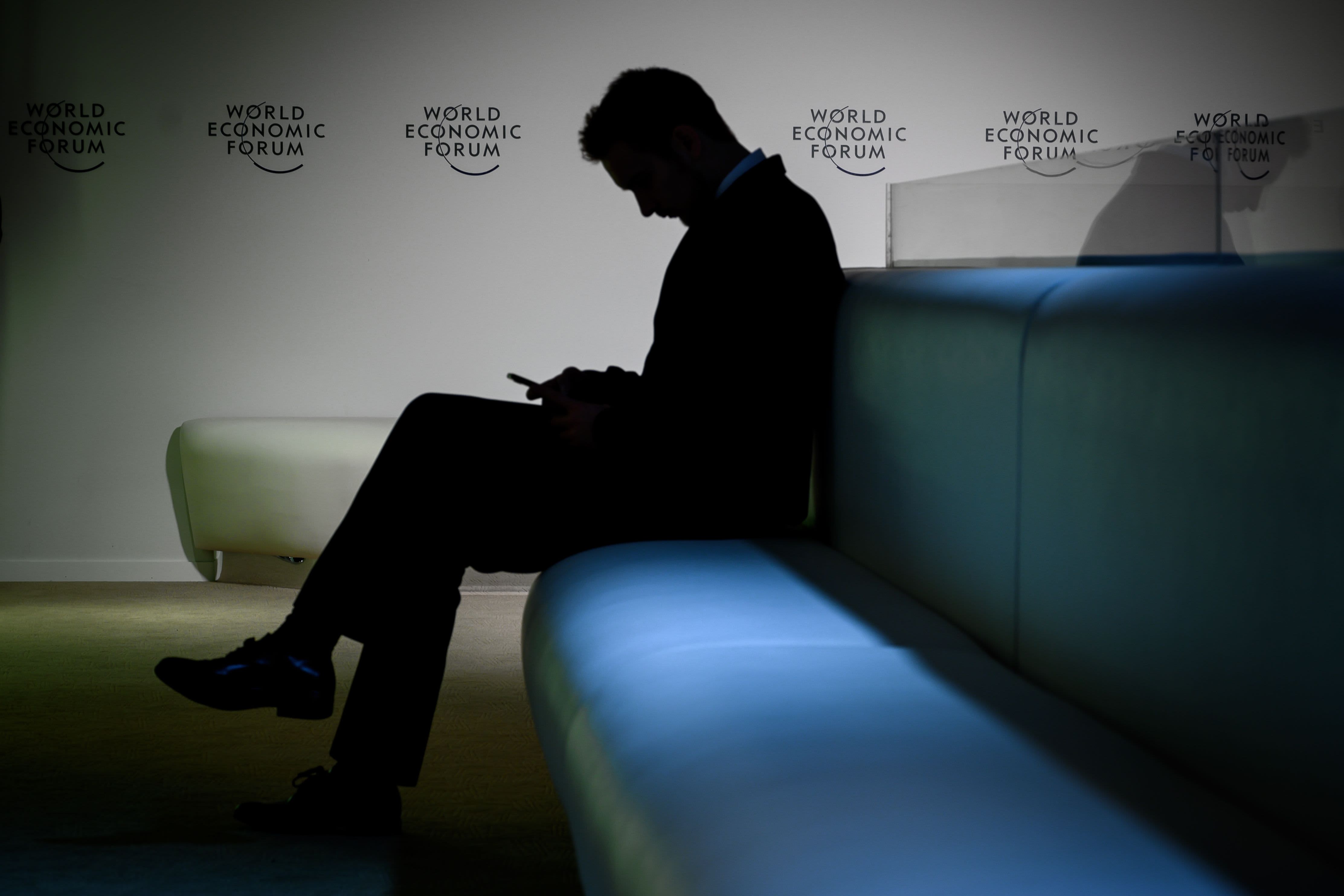More On: Davos
The view from Davos: Crypto pounding on the door of the World Economic Forum
Critics in Davos are calling cryptocurrency a 'pyramid scam,' 'worthless,' and 'untrustworthy.'
How Davos became an anarchist and conspiracy theory target
Despite the price drop, the crypto swarm dominates Davos' main boulevard
The World Economic Forum is working to improve its image.
This week, almost 2,500 global commercial, political, and public leaders are anticipated to participate in a rare springtime Davos.
The annual summit will be held in the opulent Alpine ski town of Davos in Switzerland for five days of discussion on topics such as Covid-19, Russia's conflict in Ukraine, and the climate problem.
Due to safety concerns over the coronavirus epidemic, the event's organizers postponed the gathering from its usual January date. However, after a two-year break, the forum's first in-person event has returned, much to the delight of locals.
The subject of this year's event is "Government Policies and Business Strategies at a Turning Point in History."
It is really important to us. In an interview with CNBC's Tom Chitty, Samuel Rosenast, a spokesman for Switzerland's tourist authority, stated that the victory was significant for the entire country.
Rosenast stated that the event was "unbelievably significant" to the residents of Europe's highest town, predicting that the resort may earn roughly 72 million Swiss francs ($70 million) this week alone.
Every company interacts with the World Economic Forum. People recognize its significance," Rosenast stated. "The majority of individuals here are anticipating the World Economic Forum. They are pleased that the event will be held here again this year."
'A sign of a failing period'
Not everyone welcomes the return of the world's commercial and political elite to the Swiss Alps, though. In recent years, the event has been harshly attacked for being out of touch, ineffectual, and irrelevant.
In a panel in Davos three years ago, Dutch historian Rutger Bregman called out billionaires for tax evasion, which went viral. In a tape that has been seen almost 11 million times, Bregman stated that the fundamental cause of inequality was a global inability to properly combat tax dodging.
Bregman stated at the time, "I feel like I'm at a firemen conference where no one is permitted to speak about water." This is hardly rocket science... we should be discussing taxation. That is all. Taxes, taxes, taxes."

Referring to WEF's former theme, "The Great Reset," hundreds of thousands of messages have circulated on social media in recent years, with many claiming that the global elite planned to utilize the coronavirus to cause a complete economic collapse.
"Like many other organizations, we have been the focus of campaigns of disinformation. The World Economic Forum's managing director, Saadia Zahidi, stated that the organization is aggressively attempting to fight this issue.
"We believe in facts, we believe in science, we believe in evidence and we believe in experts. And that is exactly what the one hundred or so professionals and corporate and political leaders who have assembled for this conference will give."
Protesters, campaigners, and those on the frontlines of injustice have attempted to question the WEF over its "empty rhetoric," claiming that Davos is "a symbol of a failing period" that must be abandoned.
According to a research issued by the international charity Oxfam on Monday, 573 individuals became billionaires during the coronavirus epidemic, or one every thirty hours. The report, titled "Profiting from Pain," predicts that 263 million more people will descend into extreme poverty this year, at a rate of 1 million per 33 hours.
"Billionaires are gathering in Davos to celebrate a phenomenal increase in their wealth. Simply put, the epidemic and subsequent sharp hikes in food and energy costs have been a boon for them, according to Gabrielle Bucher, executive director of Oxfam International.
"Meanwhile, decades of progress against severe poverty are reversing, and millions of people face insurmountable increases in the cost of merely surviving."
Philipp Wilhelm protested the yearly meeting of billionaires and political figures in the city where he was born during his childhood. Wilhelm is now the mayor of Davos, and his objective is to host a successful gathering.
"I protested during the annual conference because it was necessary for me to emphasize that addressing the climate problem is crucial. "We must make the globe a more equitable place," Wilhelm remarked.
Wilhelm stated that he participated in demonstrations because he believed it was crucial to ensure that everyone coming in Davos "understands how vital it is to resolve these issues."

Wilhelm stated that he and WEF have altered their stances since his protesting days and added that he felt he can influence policy more effectively in his present position.
Wilhelm responded, "No, it does not upset me in the least that criticism of WEF has been too strongly connected with Davos, given that the town itself has become virtually interchangeable with the conference."
"I think it's fascinating because Davos is known as a location where people gather and debate, and by that I mean that it should be contentious. Wilhelm stated that there should be a conversation about the best method to improve the situation of the planet.
Davos 2022 is ‘one marker in time’
"The work of the forum is continuing. "The summit is a moment in time," remarked the WEF's Zahidi.
"What we've been doing for the past two and a half years, even if it hasn't been evident through a particular conference, is a body of work that aims to reduce inequality while simultaneously tackling one of the greatest existential threats we all face: climate change."
When asked if increasing economic disparity has become a particular concern for the forum, Zahidi responded, "Inequality is a global issue." We are aware that nations that fail to fight inequality would see slower growth."
"Therefore, an effort must be made to address inequity. What does that mean? "Better education, better skills, better employment, addressing issues like as taxes, and altering the character of our economies so that they work for the people, not just the few," added Zahidi. This will be the primary focus of next week's agenda.
=====
















